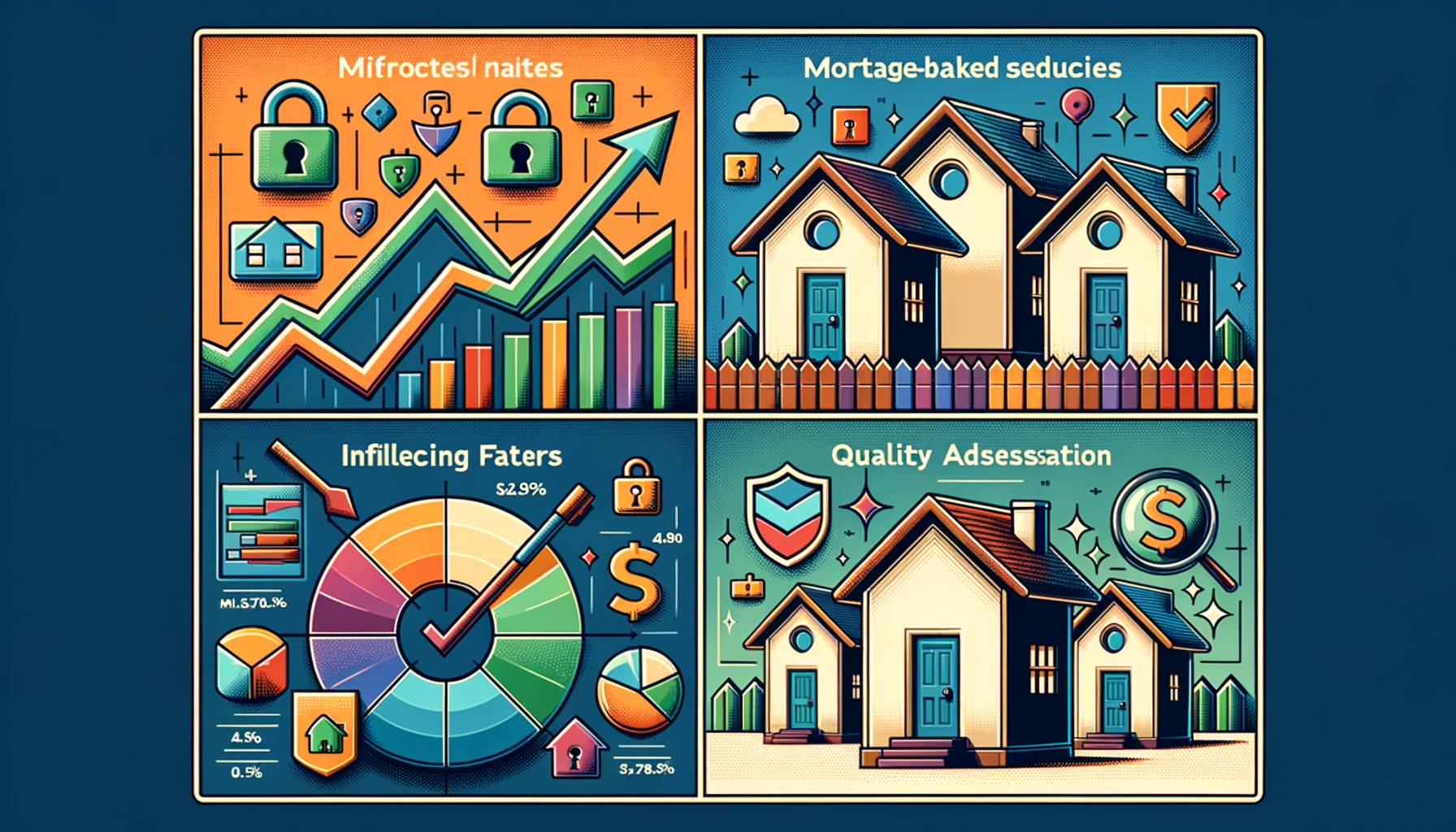“Deciphering the Impact: A Comprehensive Recap of Mortgage Market Activity for June 20, 2024”
In the ever-evolving landscape of the financial markets, mortgage-backed securities (MBS) continue to be a pivotal part of the investment matrix. Understanding how these securities perform can provide essential insights into broader economic trends, particularly as they pertain to the housing market and interest rates. Let’s delve deeper into the recent dynamics around MBS and unpack what this means for investors and the housing market.
### What Are Mortgage-Backed Securities?
Before diving into the specifics, it’s essential to understand what MBS actually are. Essentially, these are investments that are secured by mortgages, which are pooled together by institutions like Fannie Mae and Freddie Mac. When you invest in MBS, you are essentially funding a group of home loans, receiving periodic payments as homeowners pay their mortgages.
MBS can be attractive to investors because they offer periodic income, and the risk is spread across multiple properties rather than concentrated in a single real estate investment. However, the value of these securities is sensitive to changes in interest rates and the health of the housing market.
### Recent Performance of MBS
Recent trends in the MBS market have been influenced strongly by the overall economic environment. Throughout early 2024, the market saw varying levels of volatility, often driven by broader economic signals and policy changes. For instance, fluctuations in MBS values have been closely tied to adjustments in interest rates by the Federal Reserve, as well as economic data releases such as employment rates and consumer spending.
In the latest observations, MBS prices experienced mild fluctuations within a narrow range. This stabilization is notable after periods of significant volatility. One reason for the recent trend could be attributed to a balanced demand and supply equation in the housing market. Furthermore, investor sentiment has been relatively cautious, influenced heavily by macroeconomic indicators and speculation around future movements in interest rates.
### Factors Influencing MBS Markets
Several factors can impact the performance and stability of MBS. Key among them are:
– **Interest Rates:** The primary determinant for MBS performance. When rates increase, the potential returns on newly issued MBS become more attractive, reducing the value of existing securities whose rate of return is now comparatively lower. Conversely, when rates drop, existing MBS with higher rates become more valuable.
– **Economic Indicators:** Data such including unemployment figures, consumer spending, and economic growth can influence investor expectations about the future of the economy and interest rate movements, thereby affecting MBS investments.
– **Housing Market Conditions:** Since the underlying assets are mortgages, the health of the housing market is critically important. Factors such as home prices, supply and demand for housing, and the foreclosure rate can all impact the value of MBS.
### Implications of Current Trends
Given the recent patterns in interest rates and economic indicators, the MBS market could be poised for further changes. Stability in Mbs prices suggests that investors might be viewing these securities as a safer asset amidst broader market uncertainties. However, potential upcoming shifts in economic policy and interest rates warrant careful monitoring.
For homebuyers, the implications are direct. The cost of obtaining a mortgage can be influenced by the performance of MBS, as lenders adjust rates based on their funding costs and risk assessments. Therefore, understanding these dynamics can be crucial for potential homeowners to time their purchases effectively.
### Investment Strategies in MBS
For investors considering MBS as part of their portfolio, several strategies can be adopted to manage risk and optimize returns:
– **Diversification:** By spreading investments across various types of MBS, or by combining MBS with other asset types, investors can reduce the risk of significant losses.
– **Interest Rate Hedging:** Employing strategies such as options or futures can help manage the risks associated with fluctuations in interest rates.
– **Quality Assessment:** Choosing MBS from issuers with a strong track record and investments in borrowers with good credit ratings can also mitigate risk.
### Looking Ahead
As 2024 progresses, all eyes will be on the Federal Reserve’s decisions regarding interest rates, especially in response to ongoing economic data releases. Investors in the MBS market will need to stay vigilant and responsive to these changes. Monitoring economic indicators and maintaining flexible investment strategies will be critical in navigating the complexities of MBS investments.
For those more indirectly affected, such as potential homebuyers or current homeowners looking to refinance, it will be crucial to keep an eye on how these broader financial dynamics could impact mortgage rates and, by extension, the housing market.
In conclusion, while the market for mortgage-backed securities shows signs of stabilizing in the near term, the array of influencing factors makes it a complex field worthy of detailed attention. Whether you are an investor directly engaging with MBS, or someone interested in the housing market outcomes they help drive, staying informed and proactive is vital. As always, consulting with a financial advisor to tailor decisions to personal financial situations and goals remains sage advice.

